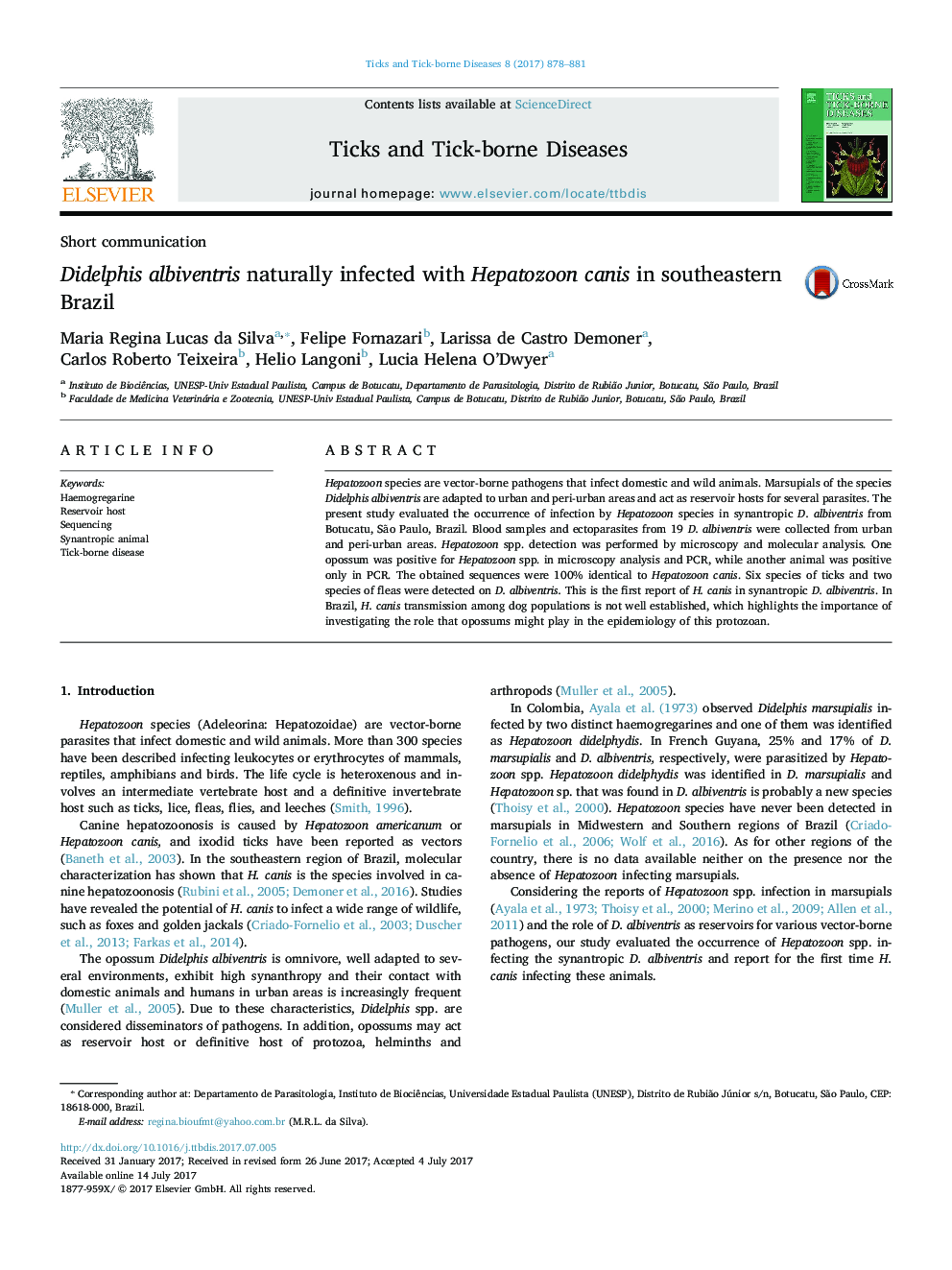| Article ID | Journal | Published Year | Pages | File Type |
|---|---|---|---|---|
| 5546273 | Ticks and Tick-borne Diseases | 2017 | 4 Pages |
Hepatozoon species are vector-borne pathogens that infect domestic and wild animals. Marsupials of the species Didelphis albiventris are adapted to urban and peri-urban areas and act as reservoir hosts for several parasites. The present study evaluated the occurrence of infection by Hepatozoon species in synantropic D. albiventris from Botucatu, São Paulo, Brazil. Blood samples and ectoparasites from 19 D. albiventris were collected from urban and peri-urban areas. Hepatozoon spp. detection was performed by microscopy and molecular analysis. One opossum was positive for Hepatozoon spp. in microscopy analysis and PCR, while another animal was positive only in PCR. The obtained sequences were 100% identical to Hepatozoon canis. Six species of ticks and two species of fleas were detected on D. albiventris. This is the first report of H. canis in synantropic D. albiventris. In Brazil, H. canis transmission among dog populations is not well established, which highlights the importance of investigating the role that opossums might play in the epidemiology of this protozoan.
